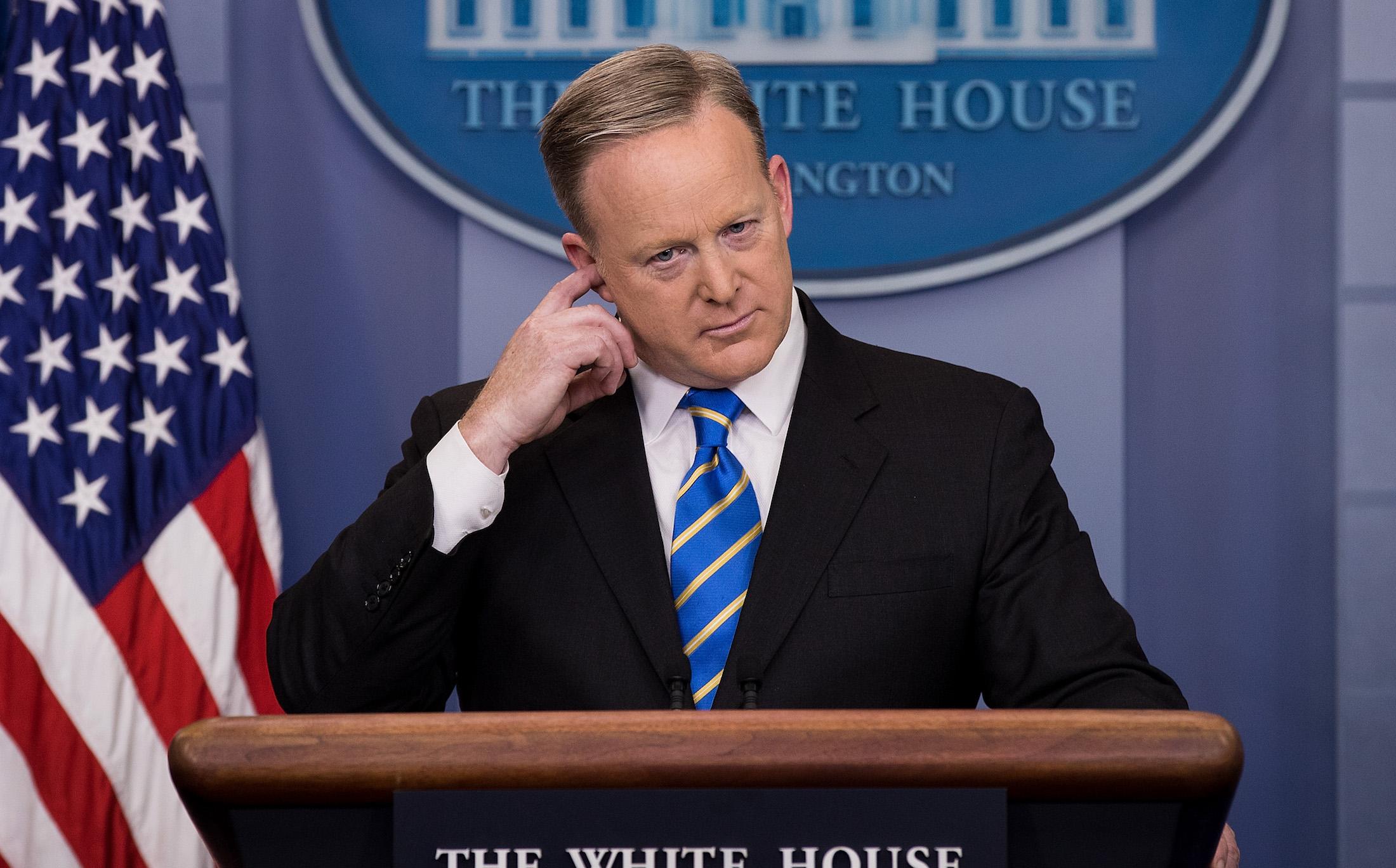Sean Spicer once said only dictatorships would ban media access
The press secretary blocked journalists from the daily briefing on Friday

Your support helps us to tell the story
From reproductive rights to climate change to Big Tech, The Independent is on the ground when the story is developing. Whether it's investigating the financials of Elon Musk's pro-Trump PAC or producing our latest documentary, 'The A Word', which shines a light on the American women fighting for reproductive rights, we know how important it is to parse out the facts from the messaging.
At such a critical moment in US history, we need reporters on the ground. Your donation allows us to keep sending journalists to speak to both sides of the story.
The Independent is trusted by Americans across the entire political spectrum. And unlike many other quality news outlets, we choose not to lock Americans out of our reporting and analysis with paywalls. We believe quality journalism should be available to everyone, paid for by those who can afford it.
Your support makes all the difference.White House Press Secretary Sean Spicer once said that only a dictatorship would prevent the media from access to public information. And just two months later he blocked several high-profile news outlets from the daily press briefing.
In December, Spicer promised that the Trump administration would never ban press access regardless of the President’s feelings on their news coverage. When Politico’s Jake Sherman asked Mr Spicer if the new administration would limit press access, he responded by saying the media is what “makes a democracy a democracy versus a dictatorship.”
“One of the things that the Trump campaign gained notoriety for, and was criticised for,” Mr Sherman began, “was banning reporters and banning outlets. You’ve said, I think, that that’s not going to happen?”
Mr Spicer replied: “Look, there’s a big difference between a campaign where it is a private venue using private funds and a government entity. I think we have a respect for the press when it comes to the government. That is something you can’t ban an entity from.
“I think, look, there’s a big difference between a campaign where it is a private venue using private funds and a government entity,” he continued. “And I think we have a respect for the press when it comes to the government, that that is something you can’t ban an entity from. You know conservative, liberal, otherwise I think that is what makes a democracy a democracy versus a dictatorship.”
The news outlets blocked from the press briefing on Friday include organisations that President Trump has criticised by name. CNN, BBC, The New York Times, LA Times, New York Daily News, BuzzFeed, The Hill, and the Daily Mail were among the organisations banned from the meeting.
Instead, the press secretary hand-picked news outlets including Breitbart News, One America News Network, The Washington Times, all news organisations with far-right leanings. Others major outlets approved included ABC, CBS, NBC, Fox News, Reuters and Bloomberg.